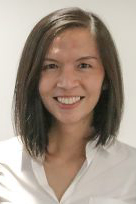Yaroslavsky on Standing Up Against Hate
Zev Yaroslavsky, director of the Los Angeles Initiative at UCLA Luskin, spoke with KPCC’s “AirTalk” about a new report on hate crimes in Los Angeles County. In 2021, the number of reported hate crimes rose from 641 to 786, the highest since 2002, according to the county’s Commission on Human Relations. The most targeted groups were the Black, LGBTQ, Latino and Jewish communities. Yaroslavsky said public officials must use their positions of authority to stand up against hate. “You speak up. You make it socially unacceptable to behave in bigoted ways, not just antisemitism but racism, sexism, homophobia,” said Yaroslavsky, who served as a Los Angeles councilman and supervisor for 40 years. “One of the most important roles an elected official can perform is to set the bar high when it comes to human relations, and to give no quarter to anyone who advocates persecution, who traffics in bigotry and antisemitic or racist tropes.”
 Despite recent gains in lesbian, gay, bisexual and transgender rights in the United States such as gay marriage and the right to serve openly in the military, the fight against equality for LGBT people appears to be gaining strength, according to
Despite recent gains in lesbian, gay, bisexual and transgender rights in the United States such as gay marriage and the right to serve openly in the military, the fight against equality for LGBT people appears to be gaining strength, according to 